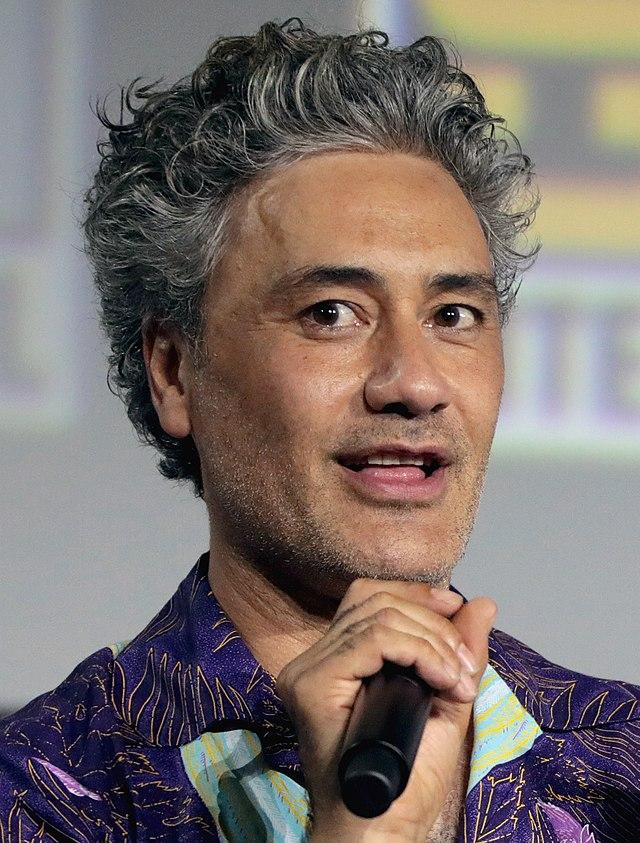In the ever-evolving landscape of mainstream cinema, where formulaic narratives often dominate the box office, the emergence of filmmakers who challenge conventional storytelling norms is both celebrated and scrutinized. Among these mavericks, Taika Waititi stands out with his distinctive blend of humor and drama, a style that has both charmed audiences and sparked debate within the industry. Known for infusing his films with a unique comedic sensibility while tackling profound themes, Waititi’s approach raises a critical question: Is his unconventional narrative style too avant-garde for mainstream cinema, or does it signal a refreshing shift in audience expectations? This article delves into the nuances of Waititi’s filmmaking, examining the delicate balance he strikes between comedy and pathos, and explores whether his artistic vision aligns with or diverges from the traditional paradigms of mainstream cinematic success.
Understanding Taika Waititis Unique Cinematic Style
Taika Waititi’s films are characterized by a distinctive blend of humor and drama that often defies conventional cinematic norms. His ability to weave comedy into serious narratives is not merely for comedic relief but serves as a tool to enhance the emotional depth of his stories. This approach can be seen in films like “Jojo Rabbit,” where the absurdity of humor is juxtaposed against the grim backdrop of World War II, creating a narrative that is both poignant and entertaining. Waititi’s style often includes:
- Subversive Storytelling: By challenging traditional storytelling methods, Waititi’s narratives often explore themes of identity, belonging, and resilience.
- Relatable Characters: His characters, while often placed in extraordinary circumstances, remain deeply human and relatable, allowing audiences to connect on a personal level.
- Visual Aesthetics: A vibrant color palette and meticulous attention to visual detail contribute to the whimsical yet impactful tone of his films.
Despite the unconventional nature of his films, Waititi has managed to capture the attention of both critics and mainstream audiences. His ability to maintain a balance between light-heartedness and gravity allows his work to resonate widely, suggesting that his unique style, while unconventional, is not beyond the reach of mainstream cinema.
Analyzing the Balance of Humor and Drama in Waititis Films
Taika Waititi’s films are known for their unique blend of humor and drama, a combination that has become his signature style. His approach to storytelling often involves weaving light-hearted, comedic elements with serious, sometimes poignant themes. This balance is achieved through several techniques:
- Character Development: Waititi’s characters are often quirky and humorous, yet they possess depth and complexity. This duality allows audiences to connect with them on an emotional level while enjoying their eccentricities.
- Dialogue: The witty, sharp dialogue in Waititi’s films is a hallmark of his style. It serves to lighten intense moments without undermining the gravity of the situation, offering a fresh perspective on conventional narratives.
- Visual Style: The vibrant and colorful cinematography often contrasts with the underlying dramatic themes, creating a visually engaging experience that complements the narrative balance.
While some critics argue that this blend might be too unconventional for mainstream cinema, others appreciate the innovation and freshness it brings to the industry. Waititi’s ability to seamlessly merge humor and drama challenges traditional genre boundaries, inviting audiences to experience stories that are both entertaining and thought-provoking.

Examining Audience Reception and Critical Response
In evaluating how audiences and critics have responded to Taika Waititi’s unique fusion of humor and drama, it becomes evident that his approach garners a spectrum of reactions. Audience reception often reveals a division between those who appreciate his idiosyncratic storytelling and those who find it jarring. Enthusiasts praise Waititi for his ability to tackle serious themes with a lighthearted touch, citing films like Jojo Rabbit as examples where comedy provides a poignant counterbalance to the gravity of the subject matter. However, some viewers feel that this blend can undermine the emotional weight of dramatic moments, leading to a dissonance that detracts from the overall impact of the narrative.
- Critics have similarly mixed opinions, with many acknowledging the director’s distinctive style as both a strength and a potential weakness.
- Some commend his daring and inventive storytelling, considering it a refreshing departure from traditional cinema.
- Others argue that the unconventional mix can alienate audiences who prefer clear-cut genres, thus challenging its mainstream appeal.
Ultimately, the reception of Waititi’s work underscores a broader conversation about the evolving tastes of moviegoers and the boundaries of genre in contemporary filmmaking.

Exploring the Potential for Mainstream Acceptance
Taika Waititi’s unique blend of humor and drama has sparked a fascinating debate regarding its potential for widespread appeal. His storytelling style, characterized by a seamless integration of wit and emotion, often challenges traditional cinematic boundaries. Some argue that this approach might be too niche, as mainstream audiences tend to gravitate towards more conventional narratives. However, others suggest that Waititi’s ability to weave complex emotions with humor could lead to a broader acceptance, as it resonates with audiences seeking fresh, engaging content.
- Innovative Storytelling: Waititi’s films often defy genre conventions, providing a refreshing alternative to formulaic plots.
- Character Depth: His characters are typically multi-dimensional, offering viewers a more profound connection through their relatable flaws and experiences.
- Emotional Resonance: By balancing humor with drama, Waititi crafts narratives that appeal to both heart and mind, which could expand his reach among diverse audience segments.
While some may find his style unconventional, it’s precisely this distinctiveness that positions Waititi as a potential catalyst for evolving mainstream tastes. As audiences increasingly crave stories that break the mold, Waititi’s work could pave the way for a new era of cinema that embraces innovation and authenticity.
